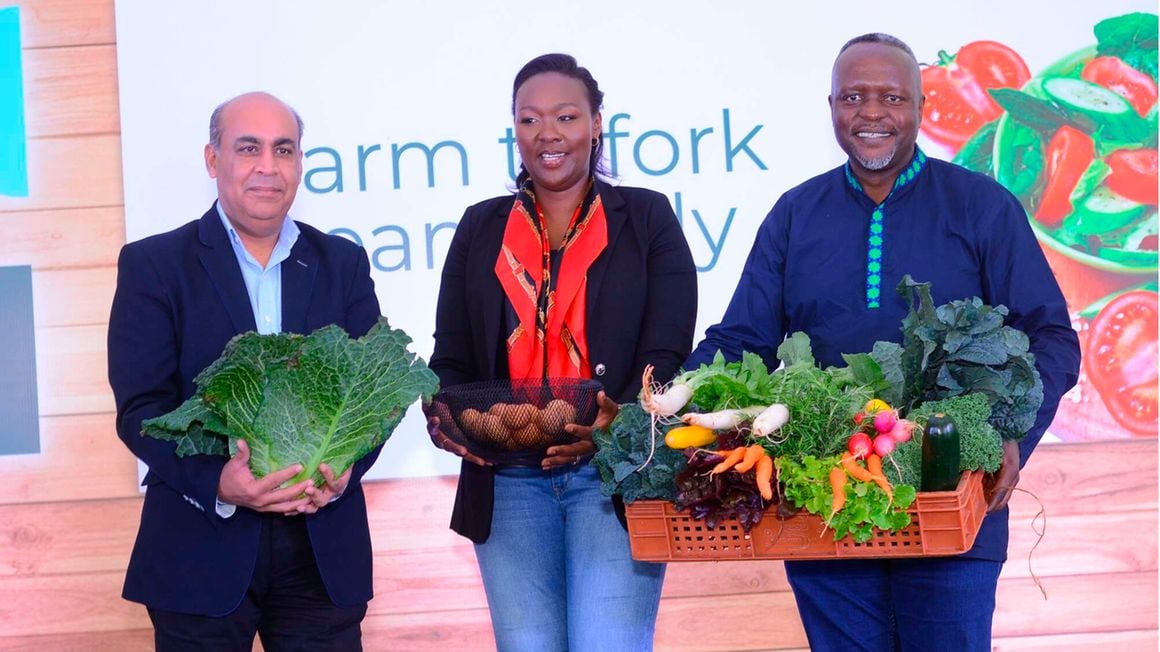Business
Platform Tawi Fresh makes traceability easier for commercial kitchens

Cherotich Rutto, like most small-scale farmers in Kenya, toiled for nearly a decade to produce fresh food only to receive meagre returns.
If she was lucky, she’d find a buyer and sell her produce, albeit at a loss. If Lady Luck did not smile on her, she would have to throw away all of the produce.
Always being in a net-loss position was a hard lesson for the passionate farmer, who had gone into the venture with her husband to supplement their income from their 8-5 banking jobs.
She founded Tawi Fresh Kenya, an online agricultural marketplace that links farmers to commercial kitchens, primarily hotels, restaurants, caterers, schools, and hospitals, easing farm-to-fork traceability, as a result of the pain of the enormous losses.
Farmers are the source of Tawi Fresh’s fresh produce, including vegetables, eggs, and chicken.
The logistics team at Tawi then collects the produce from farms and delivers it within 12 to 18 hours after commercial kitchens place their orders on the platform.
Paid within 72 hours.
According to Ms. Rutto, the agreement gives farmers access to a ready market, eliminates price fluctuations, and—most importantly—ensures that they will receive payment quickly (within 72 hours), which will help them maintain their businesses.
It enables commercial kitchens to ensure the quality of the fresh farm produce they serve to their increasingly discerning customers as awareness of healthy eating rises.
Ms. Rutto enrolled in a SC Ventures incubation program when she realized she needed to expand the business.
SC Ventures is the fintech, investment and ventures arm of British lender Standard Chartered Plc.
“We started building the platform early last year in March and started testing it out with a few kitchens and farmers. We incorporated them throughout the building journey. Scaling the business was this year in February,” she says.
Over 1,000 farmers and 250 commercial kitchens have signed up with Tawi, and it has made over 1,000 deliveries.
Farmers in Kenya have experienced problems such as trouble obtaining credit, a lack of collateral, an inability to repay due to subpar investment, lower yields and returns, and other issues that have consistently driven some farmers out of the industry.
The platform claims to make agriculture appealing by ensuring prompt and regular payment as well as market assurance.
Agronomists will be connected to the market’s financial services, and the bank will help finance irrigation powered by solar power systems.
Additionally, it will aid in farm engagement regarding product quality, production, and client requirements and direct farmers regarding planting, sowing, and harvesting seasons.
“You cannot supply these kitchens and when something goes wrong, you are not able to zero down where the problem came from. Traceability for us is very important and it is going to be a key driver for Tawi,” says StanChart Bank Kenya CEO and Tawi board chairman Kariuki Ngari.
Investment of Sh118.14 million
The multinational invested Sh118.14 million in Tawi Fresh, using the funds for farm and commercial kitchen market research.
“We have an in-house team of experts and quality assurance and control expert within the Tawi team who ensures that the produce from the farm gate to the processing centre into the client’s kitchen is safe and we have checked the quality throughout the entire process,” says Ms Rutto.
“What we were hearing from commercial kitchens, prompted reliability and traceability. On the farmer side, they want to ensure this consistency of payments and that is what Tawi Fresh promises to deliver,” adds Mr Ngari.
When compared to supplying retailers like supermarkets, who typically pay after 60 days, the platform’s policy of paying within three days is better for farmers.
“The biggest challenge facing agriculture in Kenya has been a lack of market consistency where some farmers feed cabbages to cows or farmers pour milk. Yet some parts of the same country don’t have enough food,” Mr Ngari notes.
“It becomes discouraging if you put all your efforts into farming, but you can’t get paid. So, when you talk about Tawi, it will ensure consistency. We will tell you how much we need from you. We ensure a market that is there.”
Tawi Fresh charges a commission depending on different products and specifications of kitchen orders, like the grade of produce.
“Price differs and the farmers are aware of this price range, and therefore they can get value because we pick everything from their farms,” says Ms Rutto.
supply points
In order to use the hotel sector, the platform will expand to Mombasa and Masai Mara in addition to Nairobi, Machakos, and Kajiado.
It focuses on commercial kitchens, a market with potential worth about Sh28.7 billion ($210 million).
Designed for alternative business models, SC Ventures is launching in Ghana, Malaysia, and Vietnam in addition to India and Kenya.
“Tawi is a problem statement that is present in all emerging and developing markets. With the hypothesis having proven itself in Kenya, we will look at expanding this not only into Africa but also into the Asian markets,” said SC Ventures member Jiten Arora.
‘’Standard Chartered Group want this route because they want to ensure that the flexibility that comes with fintech and startups can be done outside of the bank,” adds Mr Ngari.











